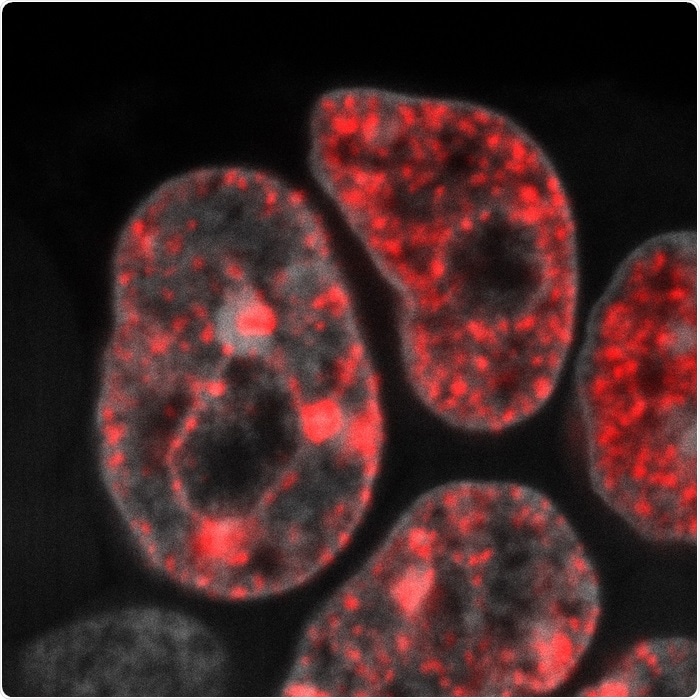Adult cells in our bodies can only produce cells of the same type. A skin cell, for example, can only produce skin cells and not muscle cells. This restricts the therapeutic potential of mature cells. During early development, however, the embryo’s cells have the ability to synthesize all of the human body’s cell types, including stem cells.

Red: Newly Synthesized DNA. Image Credit: Helmholtz Zentrum München/Tsunetoshi Nakatani.
Researchers have been inspired by this potential, known as totipotency, to uncover innovative techniques to replicate totipotency in the lab through cellular reprogramming.
Totipotent cells have their own speed
Researchers do not yet understand all of the features of totipotent cells. A novel finding has been made by Helmholtz Munich researchers:
We found out that in totipotent cells, the mother cells of stem cells, DNA replication occurs at a different pace compared to other more differentiated cells. It is much slower than in any other cell type we studied.”
Tsunetoshi Nakatani, Study First Author and Postdoc, Helmholtz Munich
In fact, one of the most crucial biological processes is DNA replication. Each time a cell splits during an individual’s lifetimes, it makes an exact copy of its DNA, ensuring that the daughter cells inherit the same genetic material. This key concept ensures that our genetic material is passed along faithfully.
The scientists revealed that the pace of DNA replication in totipotent-like cells, which can be cultured in a petri dish, is likewise slow.
This led us to the question: If we manage to change the speed at which DNA replicates, can we improve the reprogramming of cells into totipotent cells?”
Tsunetoshi Nakatani, Study First-Author and Postdoc, Helmholtz Munich
Less speed, improved cellular reprogramming
Slowing down DNA replication speed—for example, by restricting the substrate that cells utilize for DNA synthesis—boosts reprogramming efficiency or the rate at which cells may change to another cell type, according to the researchers.
This is amazing, over the years, we have been studying totipotent cells in order to learn how nature has made them so incredibly capable of generating all cell types of our bodies. This is a fundamental strategy of our research towards regenerative medicine approaches. This new concept is very simple, yet extremely important and we believe that it is a huge advance for stem cell therapy.”
Maria-Elena Torres-Padilla, Study Leader and Head, Stem Cell Center, Helmholtz Munich
Source:
Journal reference:
Nakatani, T., et al. (2022) DNA replication fork speed underlies cell fate changes and promotes reprogramming. Nature Genetics. doi.org/10.1038/s41588-022-01023-0.